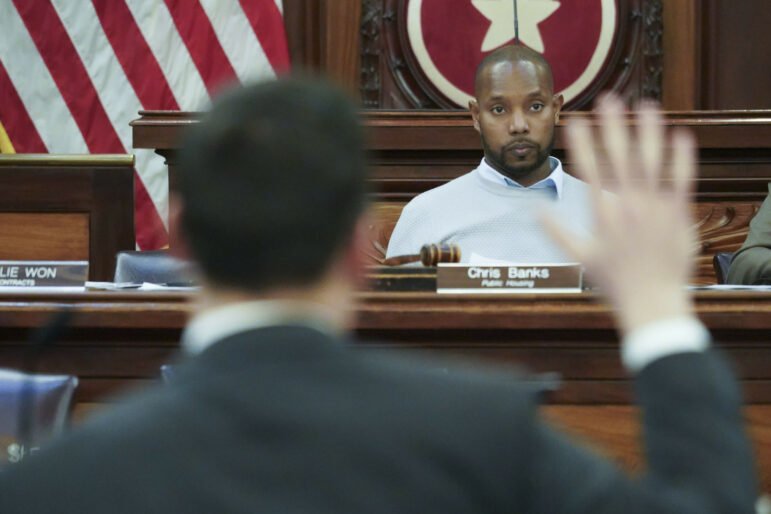This sidebar is part of a week-long series on Latino political aspiration in New York City. To read the rest of the series, please click here.
The best intentions of even a new, younger and perhaps more concerned group of Latino politicians can still put them at odds with some elements in the community. A case in point is the recent controversy over the proposed relocation of grocery home delivery giant Fresh Direct from its current location in Long Island City to an area along the southern coast of the Bronx, affecting residents of Mott Haven. Interestingly, three prominent young Latino leaders—Ruben Diaz Jr., Melissa Mark-Viverito, and Gustavo Rivera—all weighed in on the issue, though not all on the same side.
In June South Bronx residents, community groups, and New York Lawyers for the Public Interest filed a suit that charges the city and Fresh Direct did not prepare an environmental impact study nor conduct sufficient community outreach before reaching a deal with the city, which granted $130 million in subsidies to the project. The community group South Bronx Unite claims that many of the 1,000 jobs promised in the deal will pay a substandard $8.75 an hour for work that would involve spending several hours in a freezer. They say Fresh Direct has a questionable track record with workers, and that hundreds of delivery trucks will flood the streets of Mott Haven, exacerbating probably the most Puerto Rican-specific issue there is in New York: the asthma rate among young children.
Diaz Jr., who stood up to Bloomberg on an unpopular plan to convert the Kingsbridge Armory into a Related Company windfall of a shopping mall, stands with him on the importance of the Bronx retaining the Fresh Direct deal. “Fresh Direct already employs about 400 Bronxites. If they had gone to New Jersey maybe those Bronxites wouldn’t be able to commute to New Jersey,” says Diaz. “We would have lost those jobs, let alone the other 1,800 jobs of people who live in New York City. “ Diaz also dismissed concerns about truck traffic, saying Fresh Direct planned on employing a sizable number of electric trucks.
Even Rivera, who had made a strong point about being an advocate for fair wage structure, ceded to Diaz’s agenda. “Speaking with Rubén, since he’s the one who’s in the middle of all this, he kind of walked me through some of the challenges that they had to deal with,” says Rivera. “Is it a perfect deal? No, but I think overall I feel it’s going to be a positive for the Bronx.”
“We can now get Fresh Direct here at our office!” chimed in Rivera’s media coordinator, referring to the perk offered by the company, extending deliveries to the Bronx in a city where delivering to the Bronx is unheard of.
But some residents aren’t as excited.
“Local pols really think they are doing the best for us around here; some are actually being helpful, some are plainly misguided; but asking a community to accept environmental hazards–a huge fuel station, around 1,000 extra truck trips per day around our streets, the permanent blocking of our waterfront—in exchange for jobs is a classic example of environmental racism,” says Monxo López, a South Bronx Unite member and Mott Haven resident.
City Councilwoman Melissa Mark-Viverito, known for bold stands and a contentious manner, took the counter-argument from activist groups to heart. “I think there’s a problem there in terms of transparency,” she says. She has concerns about whether the proposed new Fresh Direct site, which was leased by the state to the city, can be used legally for a private commercial purpose. “There’s all these questions about the lease, the arrangement, the use of the land so we want to understand, this doesn’t make sense, it doesn’t seem like this is supposed to be the way it is bearing out. So until we get clarification, I’m not supporting it.”








